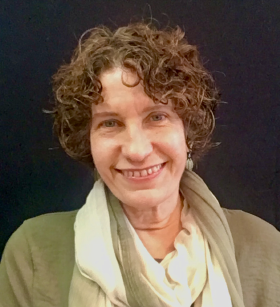On May 25th, 2022, the NITRD Subcommittee will hold a symposium to mark the 30th anniversary of the signing of the High-Performance Computing (HPC) Act of 1991 and the launching of the High-Performance Computing and Communications Program, now known as the NITRD Program. The NITRD 30th-Anniversary Symposium will bring together leading experts from the government, academic, and private sectors to both mark NITRD’s past accomplishments and look to the future. The full-day agenda includes speakers and panels in areas such as computing at scale, networking and security, artificial intelligence and machine learning (AI/ML), privacy, and the internet of things (IoT). As a group, they will present the latest advances and discuss where research is headed.
Panel 1: Computing at Scale
As our lives become increasingly digital, cloud and HPC computing has transformed the way we interact, do business, do science, and entertain ourselves. Research investments in building distributed systems at scale, from algorithms, to networking, to operating systems, have enabled computation at a scale that was unimaginable 30 years ago. This rapid transformation creates unbounded opportunities but also raises new challenges to individual’s privacy, cybersecurity, and impacts on the social fabric of society. In this session, we celebrate the incredible achievements of HPC and cloud computing and consider the path forward. The panel will be moderated by Ben Zorn and will include the following speakers: Luiz Andre Barroso, Ian Foster, Timothy Pinkston, and Kathy Yelick.
↑ Top
Panel 2: Networking and Security
Over the past few decades, the Internet and mobile phones have transformed the world. The underlying fixed and wireless networking infrastructure is being evolved by shifting and implementing more functionality in software. However, the software-enabled flexibility comes at a greater risk of security vulnerabilities. Given the critical importance of networking infrastructures around the globe, the security and trustworthiness of these networks is of paramount importance. This panel will look at the remarkable achievements in networking and discuss the key challenges and paths forward in securing this critical infrastructure. The panel will be moderated by Bob Bonneau and will include the following speakers: Nadya Bliss, Deborah Frincke, Jim Kurose, and Chris Ramming.
↑ Top
Panel 3: AI/ML

Elizabeth Bradley
Chair, Computing Community Consortium, and Professor, University of Colorado Boulder
Advances in artificial intelligence and robotics have transformed all of science and engineering and nearly every sector of our economy. This panel will characterize seminal federally-funded advances over the last three decades leading to today’s AI/robotics revolution, along with the challenges of fairness and trustworthiness that society faces in the years ahead. The panel will be moderated by Liz Bradley and will include the following speakers: Charles Isbell, Chad Jenkins, Talitha Washington, and Patricia Ordonez.
↑ Top
Panel 4: Privacy and IoT
Large-scale data analytics is enabling profound advances and new benefits in areas such as medicine, engineering, transportation, and agriculture. Preventing adverse privacy effects arising from such information processing is one of the great challenges of the digital age. The Internet of Things (IoT), a new domain of interconnected sensors, devices, and actuators, has the potential to further exacerbate negative impacts on privacy, as a myriad of sensing devices collect data and are combined into monitoring, tracking, and control systems in sectors such as healthcare, transportation, home and urban automation, and law enforcement. This panel will discuss the competing challenges of data use and privacy, and outline research goals to advance the technical, social, and policy solutions. The panel will be moderated by Chuck Romine and will include the following speakers: Ed Felten, Marc Groman, Katerina Megas, and Sunoo Park.
↑ Top
Panel 5: How Technology Can Benefit Society: Broadening Perspectives in Fundamental Research
While breakthroughs in networking and information technology supported by the NITRD program over the last three decades have had profoundly positive impacts on our society, we have also borne witness to the negative and oftentimes unintended consequences of such advances. For example, in recent years, innovations in generative adversarial networks have served to advance our understanding in fields as diverse as astrophysics and biology, they have also been the basis for the production of fake photographs and videos, threatening information integrity. Given the ubiquity of information technology research outputs in our daily lives, understanding how to “design in” ethical principles and responsible practices – and how to ensure a diversity of thought and perspectives in the design formulation – is increasingly critical. This panel will focus in on this aspect of the NITRD research space. The panel will be moderated by Alondra Nelson and will include the following speakers: Janet Abbate, Deborah Estrin, Charles Isbell, and Ramayya Krishnan.
↑ Top

























